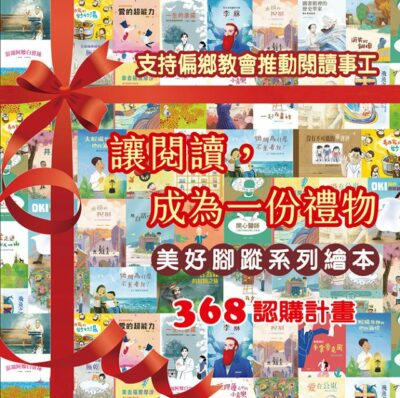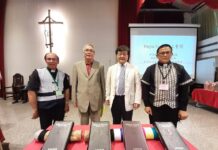Taiwan Church News
3326 Edition
November 23 – 22, 2015
Church News
A Theology Without Cross – Reflections On The Prosperity Gospel Of Yoido Full Gospel Church
Reported by Chen Yi-fan
In the afternoon on November 17, Professor Park Choong-Koo, an ethics professor of Methodist Theological University in Korea, was invited to deliver a theological lecture, entitled as “The rise and fall of the most populous Korean church: The theology of Cho Yong Gi, its nature and the related ethical problems”, at the chapel of Tainan Theological Seminary and College.
Regarding how Yoido Full Gospel Church could successfully attracted the Christian believers across the Korean peninsula and even reached out to Taiwan, Prof Park analysed the historical factors and submitted his own reflections.
Against the historical background of modern Korea, when she was just escaping the control of Japan’s colonial administration at the end of WWII yet jumping into a new round of internal warfare with North Korea at an estimated casualties of 4 million people, Park at the very beginning of the lecture asked the audience to think about one question: “How could a small church in such a desolate society, with only dozens of believers in 1958, evolved into a super-megachurch with 750 thousand members in 2008? ”
Based on Cho Yong Gi’s writings, Park pointed out that there were three main focuses of Cho’s slavation theology, i.e. body, property and soul, which was deeply influenced and formulated by both American Pentecostals and some Korean indigenous religious elements. In the meantime, in his book of The Fourth Dimension, Cho encouraged the believers to practice prayer and fasting to experience the presence of God.
“This theology sounds beautiful, everything looks so good and happy without pains! But, at least, this theology has one problem: the voice of prophet is silenced!”, criticized Park. The political oppression under the Japanese colonial rulings and the economical exploitation by South Korea’s big financial groups in the 1980s were all swept under the carpet of Cho’s theology of blessings.
Cho Yong Gi also took seriously about Korea’s traditional concept of “home” within the church. Paradoxically, this teaching became the Achilles’ heel of the Korean Church because, when more and more people took church as their home only, “Christian faith evolves into a family business to receive blessings and there is no need to reach out and care for the society!”, said Park.
In a nutshell, through fasting, healing and speaking in tongues, Park remarked that the pastoral theology of Cho Yong Gi focused on prayer and donation: despair could be overcome by positive thinking; the church could become prosperous by the spiritual training in the Fourth Dimension. Therefore, Cho’s theology was also criticized as the prosperity theology. But such colossal prosperity also made Cho’s spiritual leadership lost in the pursuit of materialism, as evidenced by subsequent scandals related to sexual affairs and financial embezzlement.
In his conclusion, Park thought Cho’s ministries would be much more solid if supported by an ethics of Christian values, such as peace, justice, equality, ecumenism and etc. The most important things in pastoral ministry includes an authentic understanding of human sin and a salvation through cross, otherwise people would easily fall into the traps of temptation and materialism, advised Park.
Translated by Peter Wolfe






